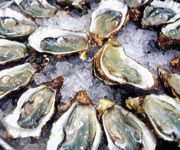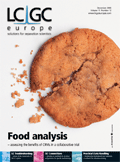European headquarters' relocation
Velocity11 has announced the relocation of its European headquarters to larger purpose built offices in the UK. This move reflects the company's successful product introductions and an increase in installed systems during the last 18 months.
Velocity11 has announced the relocation of its European headquarters to larger purpose built offices in the UK. This move reflects the company's successful product introductions and an increase in installed systems during the last 18 months.
The company's European sales represent a sizeable and growing percentage of its global turnover and the strongest customer interest has been experienced in the automation solutions it provides for screening and plate replication. The European sales manager, Gerry Alden, commented, "The new facility marks a further investment in our growing base of customers..." adding, "...we are also planning to recruit further experienced staff to enable us to maintain the high level of informed support and service we provide to customers across Europe."
The new location of the European headquarters is in Melbourn, Hertfordshire, UK.
For more information please visit the company's website at www.velocity11.com
Facility for proteomic profiling
Cenix Biosystems, Applied Biosystems and the Biotechnology Centre (Biotec) of the Technische Universität Dresden have announced a collaboration to establish a joint facility. This facility will be used for proteomic profiling of RNAi and drug effects in human cells.

The project is expected to take two years and will enable scientists from three organizations to develop and deliver novel research tools and methodologies that enable detailed and probative analyses of the cellular functions of therapeutically-relevant genes. A German federal grant of €1.2 million has been issued to support the efforts of the project through the BioChance Plus grant programme.
The three companies bring complementary core competencies to the project. Cenix BioScience will contribute a gene silencing technology for the discovery and functional characterization of novel therapeutic target genes and drug candidates. Integrated genetic and proteomic systems technology as well as RNAi reagents will be provided by Applied Biosystems. The Biotec centre of the Technische Universität Dresden combines dynamic academic training programmes with interdisciplinary research in biotechnology.
For more information visit the companies' websites at www.cenix-bioscience.com, http://www.appliedbiosystems.com/ or http://www.biotec.tu-dresden.de/
Erratum
The article titled "2D Polymer LC as a High-Speed, High-Throughput Application" by Martina Adler and Peter Kilz from PSS Polymer Standards Service GmbH, Mainz, Germany (LCGC Eur., 19(10) 552–556 (2006) has two lines of text missing from the first paragraph.
The paragraph should read "The combination of independent separation techniques improves the chromatographic resolution because of increased peak capacity, which is not the sum but the product of the peak capacities of each technique". We apologize for any inconvenience caused.
The full article can be viewed on LCGC Europe's website at www.lcgceurope.com
Genome Canada sponsorship
SGE Group and its division ETP Electron Multipliers have announced their sponsorship of the Genome Canada project at the University of Toronto.
SGE is sponsoring the development of a new generation of instrumentation in the form of a mass spectrometer-based flow cytometer, including associated methods and applications. Its division has provided the group with two FAST TOF detectors for use in the project.
For more information please visit SGE's website at www.sge.com
Baby oyster feed
Researchers in the Physiology and Biotechnology of Algae Laboratory at Ifremer, the French Research Institute for the Exploitation of the Sea, are using pumps from KNF Flodos in their photobioreactors. The microprocessor-controlled STEPDOS pumps will cultivate microalgae as food for oyster larvae.

Dr Gaël Bougaran, head of the microalgae cultivation projects, explained, "We rely on the STEPDOS pumps to maintain a very accurate and consistent flow of nutrients to the photobioreactors, continuously for up to three months. If the flow-rate changes, all the results will change, so it is critical to have the best possible accuracy."
For more information visit the company's website at www.knf-flodos.ch

Regulatory Deadlines and Supply Chain Challenges Take Center Stage in Nitrosamine Discussion
April 10th 2025During an LCGC International peer exchange, Aloka Srinivasan, Mayank Bhanti, and Amber Burch discussed the regulatory deadlines and supply chain challenges that come with nitrosamine analysis.











